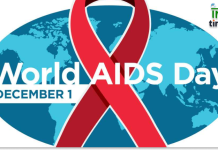
Stomach Cancer Awareness Month, observed every November, is a time dedicated to raising awareness about stomach cancer, a disease that impacts thousands of lives each year. This month is vital for educating the public on prevention, early detection, and available treatments, as well as for supporting those affected by this challenging illness. As we mark Stomach Cancer Awareness Month 2024, let’s look at ways we can collectively spread knowledge, reduce risk, and promote hope for those facing stomach cancer.
Why Stomach Cancer Awareness Matters
Stomach cancer, also known as gastric cancer, is often difficult to detect early because symptoms can be subtle or mistaken for other digestive issues. By spreading awareness and encouraging regular check-ups, we increase the chances of early detection, which greatly improves treatment outcomes. Awareness campaigns also provide essential support and resources to patients, families, and caregivers, emphasizing the importance of timely medical intervention and lifestyle changes.
Understanding Stomach Cancer: Types, Symptoms, and Risk Factors
1. Types of Stomach Cancer
- Adenocarcinoma: The most common type, starting in the stomach’s inner lining.
- Lymphoma: A rare cancer affecting the immune system tissue within the stomach walls.
- Gastrointestinal Stromal Tumor (GIST): A type of tumor that begins in special cells in the stomach wall.
- Carcinoid Tumors: These arise in hormone-producing cells in the stomach.
2. Common Symptoms of Stomach Cancer
- Persistent indigestion or heartburn
- Unexplained weight loss
- Loss of appetite or feeling full quickly
- Abdominal pain or discomfort, especially after eating
- Nausea or vomiting, sometimes with blood
- Fatigue or weakness
3. Risk Factors for Stomach Cancer
- Infection with Helicobacter pylori: A common bacterial infection linked to ulcers and increased cancer risk.
- Dietary Choices: High intake of salty, smoked, or pickled foods can increase risk.
- Smoking and Alcohol Consumption: Both can damage the stomach lining and elevate cancer risk.
- Genetics and Family History: Those with close family members who had stomach cancer may have a higher risk.
- Age and Gender: Stomach cancer is more common in older adults and tends to affect men more than women.
The Importance of Early Detection
Early detection can make a significant difference in treatment success. Regular screenings, particularly for high-risk individuals, are essential. Endoscopic exams, such as an upper endoscopy, allow doctors to look for abnormalities in the stomach lining and, if necessary, biopsy suspicious areas. Blood tests, imaging studies, and physical exams also help with early detection.
Preventing Stomach Cancer: Key Lifestyle Tips
1. Maintain a Healthy Diet
- Prioritize fresh fruits, vegetables, and whole grains.
- Limit intake of smoked, pickled, and salted foods.
- Incorporate foods rich in antioxidants, like berries, leafy greens, and nuts.
2. Quit Smoking
- Smoking damages the stomach lining and increases the risk of stomach cancer. Seek support for quitting through programs or medications if necessary.
3. Reduce Alcohol Consumption
- Excessive alcohol intake can irritate the stomach lining and increase cancer risk, so it’s best to consume it in moderation.
4. Regular Health Screenings
- Especially if you’re in a high-risk group, regular check-ups and screenings can aid early detection and prevent cancer progression.
5. Treat H. pylori Infections
- Testing for and treating Helicobacter pylori infections can lower cancer risk, particularly in individuals with other risk factors.
Recent Advances in Stomach Cancer Treatment
Stomach cancer treatment has seen promising advancements over the years, including:
- Targeted Therapy: Focuses on specific molecular targets in cancer cells, such as HER2, which is present in some types of stomach cancer.
- Immunotherapy: Helps the body’s immune system recognize and attack cancer cells more effectively.
- Chemotherapy and Radiation Therapy: Traditional therapies are often combined with newer treatments for an integrated approach.
- Minimally Invasive Surgery: Techniques such as laparoscopic surgery allow for less invasive treatment options, often resulting in quicker recovery.
Supporting Those Affected by Stomach Cancer
Offering emotional and practical support to those with stomach cancer is crucial. Many patients face not only physical but also emotional challenges, including anxiety and depression. Support networks, whether family, friends, or dedicated cancer support groups, can make a significant difference in coping with the disease.
How to Participate in Stomach Cancer Awareness Month 2024
- Raise Awareness on Social Media: Share facts, statistics, and personal stories to increase awareness. Using hashtags like #StomachCancerAwarenessMonth2024 helps expand reach.
- Participate in Local Events and Fundraisers: Many communities organize events to raise funds for stomach cancer research and patient support.
- Wear the Periwinkle Ribbon: The periwinkle ribbon represents stomach cancer awareness and can be worn to show solidarity with patients and survivors.
- Donate to Research Organizations: Supporting organizations that fund stomach cancer research helps provide essential resources for finding better treatments.
Conclusion
Stomach Cancer Awareness Month 2024 encourages us all to become informed about stomach cancer’s risk factors, early symptoms, and prevention strategies. By promoting regular check-ups, maintaining a healthy lifestyle, and supporting ongoing research, we can work together to make progress toward a future where stomach cancer is less prevalent and more treatable. This month, let’s come together to support, educate, and spread hope for all those affected by stomach cancer.
FAQs
1. Who is at the highest risk for stomach cancer?
People with a family history of stomach cancer, those infected with H. pylori, and individuals who smoke or consume a diet high in salty and smoked foods are at higher risk.
2. Can stomach cancer be prevented?
While there’s no guaranteed way to prevent it, lifestyle changes like eating a healthy diet, avoiding smoking, limiting alcohol, and treating H. pylori infections can reduce risk.
3. What are the primary treatment options for stomach cancer?
Treatment options depend on the stage but may include surgery, chemotherapy, radiation, immunotherapy, and targeted therapy.
4. How does an H. pylori infection increase stomach cancer risk?
H. pylori bacteria can cause chronic inflammation in the stomach lining, which can lead to ulcers and potentially increase the risk of cancer.
5. Are there early screening tests for stomach cancer?
Screening methods like endoscopies are recommended for high-risk individuals, especially those with a family history of stomach cancer or H. pylori infection.




































